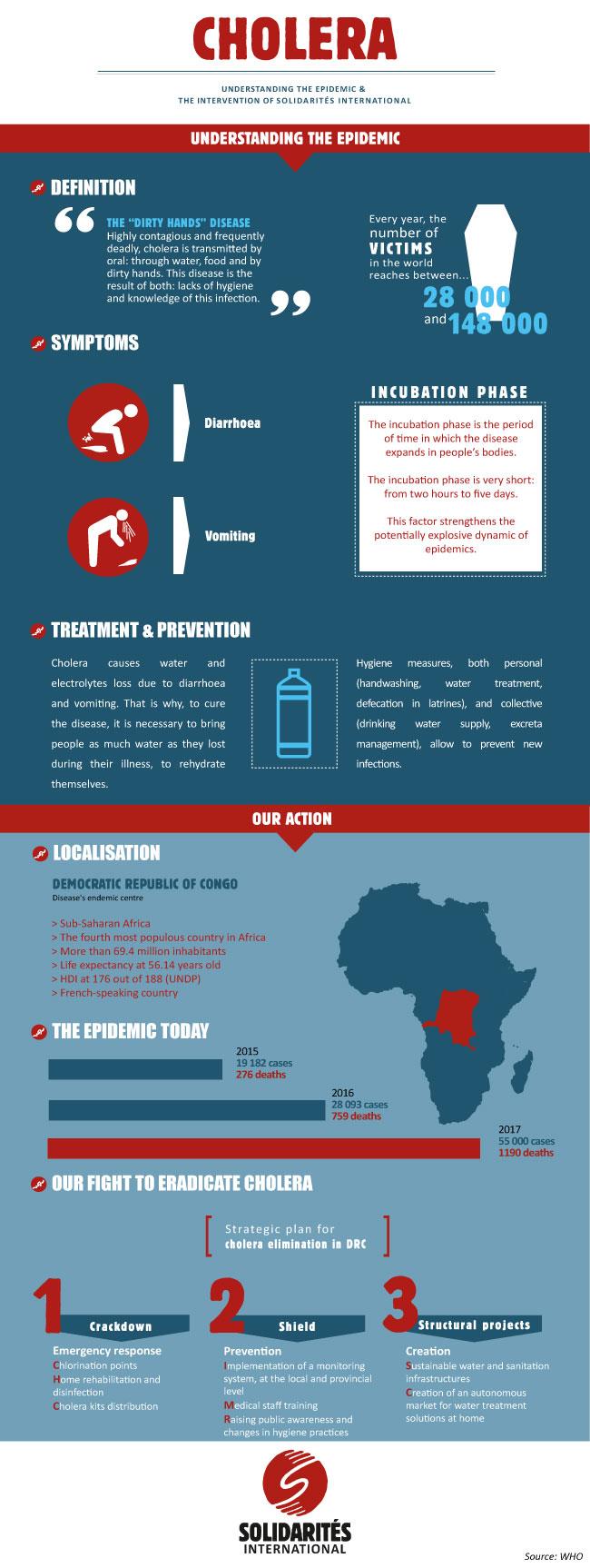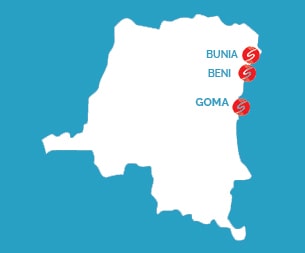Highly contagious and frequently deadly, cholera is transmitted by oral: through water, food and by dirty hands. This disease is the result of both lacks of hygiene and knowledge of this infection. Every year, the number of victims of the “dirty hands disease” in all the world reaches between 28 000 and 148 000.

INCUBATION PHASE
The incubation phase is the period of time in which the disease expands in people’s bodies. The incubation phase is very short from two hours to five days. This factor strengthens the potentially explosive dynamic of epidemics.
TREATMENT & PREVENTION
Cholera causes water and electrolytes loss due to diarrhoea and vomiting. That is why, to cure the disease, it is necessary to bring people as much water as they lost during their illness, to rehydrate themselves. Hygiene measures, both personal (handwashing, water treatment, defecation in latrines), and collective (drinking water supply, excreta management), allow to prevent new infections.
THE EPIDEMIC TODAY
2015
19 182 cases
276 deaths
2016
28 093 cases
759 deaths
2017
55 000 cases
1190 deaths
OUR FIGHT TO ERADICATE CHOLERA
- Emergency response
- Chlorination points
- Home rehabilitation and disinfection
- Cholera kits distribution
- Prevention
- Implementation of a monitoring system, at the local and provinciallevel
- Medical staff training
- Raising public awareness and changes in hygiene practices
- Creation
- Sustainable water and sanitation infrastructures
- Creation of an autonomous market for water treatment solutions at home
SUPPORT OUR TEAMS
© Gwenn Dubourthoumieu & SOLIDARITES INTERNATIONAL
Democratic Republic of Congo (DRC)
Context and action- 107 millions inhabitants
- 179th out of 191 countries on the Human Development Index
- 524.327 people helped

